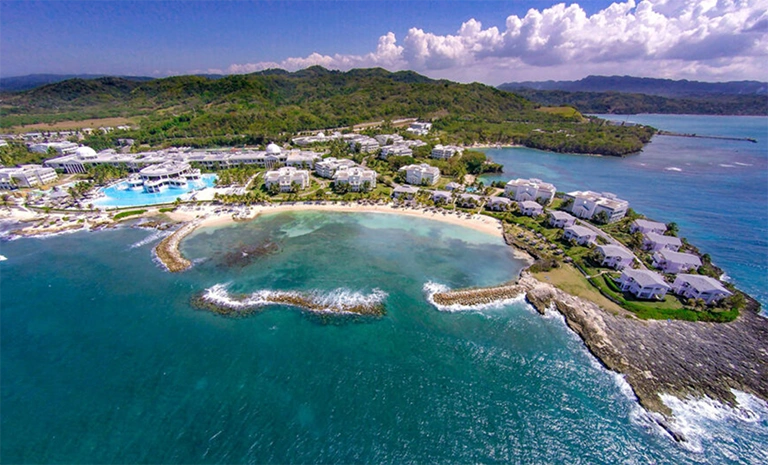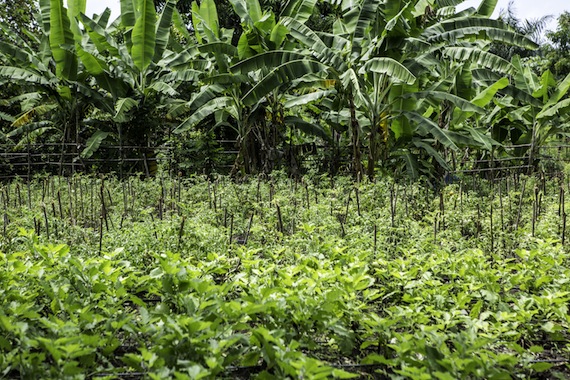Op-Ed: Integrating the Caribbean and Central America

By Alberto Duran and Noemi Areli Sanchez
Op-Ed Contributors
The Central American Integration System (SICA) was formed in 1991 and is a regional organization which includes the States of Belize, Costa Rica, Dominican Republic, El Salvador, Guatemala, Honduras, Nicaragua and Panama.
This alliance was formed with the purpose of enhancing integration for the cohesion on sensitive issues such as poverty, democracy, freedom and trade.
According to SICA’s mandate, one of the purposes of SICA is to “promote, in a harmonious and balanced way, the sustained economic, social, cultural and political development of Member States and the region as a whole.”
Since its formation, SICA has grown in strength and its population is at more than 45 million people, with a Gross Domestic Product of $108 million, and international investments for $3,000 million. The System also includes a group of Regional and Extra regional Observers, from Latin America, Europe and Asia.
The Association of Caribbean States (ACS) is a product of the desire of the 28 Contracting States, Countries and Territories of the Greater Caribbean to enhance cooperation within the region, an initiative aimed at building upon obvious geographic proximity and well-documented historical linkages.
To that end, the ACS is an organization for consultation, cooperation and concerted action among the countries of the Greater Caribbean. Based on four distinct pillars, its directorates are focused on four (4) thematic areas for growth which include Disaster Risk Reduction, Transport, Trade and External Economic Relations, and Sustainable Tourism.
The SICA bodies and Institutions such as Central American Secretariat for Economic Integration (SIECA), Secretariat of Central American Tourism Integration (SITCA), Coordination Center for Natural Disaster Prevention in Central America (CEPREDENAC), among others are important pillars for generating public policies.
Due to increased integration among Latin America and the Caribbean States, as well as of hemispheric organizations, the Community of Latin American and Caribbean States (CELAC) — a regional and international organization that promotes the integration and development of its members– in 2010, noted that convergence on issues of common have evolved among regional organizations.
Throughout the various CELAC Summits, Member States have expressed their interest in being able to incorporate the regional mechanisms of integration in the same way: (I CELAC Summit – Declaration of Santiago): “We emphasize the development of the CELAC instance aimed at strengthening complementarity and avoiding duplication between Integration Mechanisms in the region, convinced that their interaction, based on the principles of solidarity and cooperation, is essential for the consolidation of the Community. We appreciate the resolute and permanent collaboration of regional, subregional mechanisms and international organizations in the foundational year”.
Subsequently, the reaffirmation of the Heads of State at the II CELAC Summit in Havana, held on 28-29 January 2014, stated:
“We believe that it is fundamental to further perfect the coordination and cooperation among CELAC member States, in the context of international bodies, as long as it is possible and viable; 8. We recognize … the importance of permanent dialogue to consolidate consensus on issues of regional interest, on the basis of the principles of solidarity, complementariness with other regional and subregional experiences or institutions, and cooperation, and aimed at achieving effective results for a sustainable, inclusive and solidarity-based development of Latin American and Caribbean States.…”
Thus, and in accordance with the confirmed CELAC mandate, the ACS is strengthening its relationships with other regional mechanisms with which it shares specialized areas. In particular, we can mention the plans in common with SICA and its specialized agencies that comprise said system, in collaboration in different areas such as environment and disaster mitigation, Foreign policy coordination, Tourism and air transportation, cultural exchange..
The cooperation background between both regions is further reflected, as established in the Cooperation Agreement endorsed by SIECA and the ACS, signed in 1997 in Guatemala City and Port-au-Prince respectively.
In this Agreement, the parties expressed interest in providing mutual technical cooperation and in coordinating actions associated to projects in common in keeping with their respective overall objectives and programme of activities. The acknowledged importance of joining forces to achieve closer relationships in seeking collaboration and benefitting from the talents of both organizations’ willingness to work together to expand trade and all declarations that promote economic-commercial exchanges in the Caribbean.
The 62nd Ordinary Meeting of Heads of State and Government of Member Countries of the Latin American Integration System was recently held in the City of Punta Cana in June 2014, where integration issues for the Central American System were addressed such as, the approval of Central American Educational Policies and the Regional Strategy for Statistical Development; the Declaration of Punta Cana was also signed; the latter underscored the efforts and importance of working together with the ACS, quoted as follows:
”To acknowledge the efforts of the Association of Caribbean States (ACS), to revitalize the dialogue process in the Greater Caribbean and to continue strengthening existing ties in order to deepen cooperation in jointly-agreed strategic areas. We also instruct the General Secretariat of the Central American Integration System (SG-SICA) to continue deepening institutional relationships and cooperation with the Secretariats of the Caribbean Community (CARICOM) and of the Association of Caribbean States (ACS)”.
Delegations of the ACS and SICA met at the ACS Secretariat in May 2014 to identify concrete areas of work and develop a strategic plan of action 2015 for the cooperation and interaction between both organizations in common thematic areas.
Based on this, technical delegations from both organizations have already put forward a working outline within the different cooperation areas formerly of their expertise, with a view to exchanging experiences and knowledge that influence the development of strategies which, in turn, will lead to regional action plans that seek to improve and increase competitiveness, attract local and foreign investment, facilitate trade and sustainable tourism, reduce disasters, among others – factors that will improve the quality of life of the citizens in the Member States.
Both organizations are confident that their joint work will thoroughly adhere to the noble proposals of CELAC, and at the same time, will redound to the benefit of the societies and people of the Greater Caribbean, as well as increase trade and investment among its Member States.
Alberto Duran is the Director of Trade and Noemi Areli Sanchez is the Research Assistant of Trade of the Association of Caribbean States. Any comments or feedback can be sent to feedback@acs-aec.org
Note: the opinions expressed in Caribbean Journal Op-Eds are those of the author and do not necessarily reflect the views of the Caribbean Journal.







